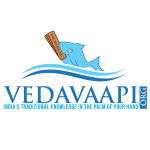- Teacher: Rajasekharuni Vijay Sarma
Available courses
There is an urgent need for children to be introduced to the treasures of Bharatiya knowledge systems. This workshop aims to help teenagers understand and appreciate the Indian aesthetic tradition of Alankara shastra in a fun, interactive way. The discussions include examples from Sanskrit and English literature with many contemporary applications that will help in their overall development into well-rounded, happy, and successful young adults.
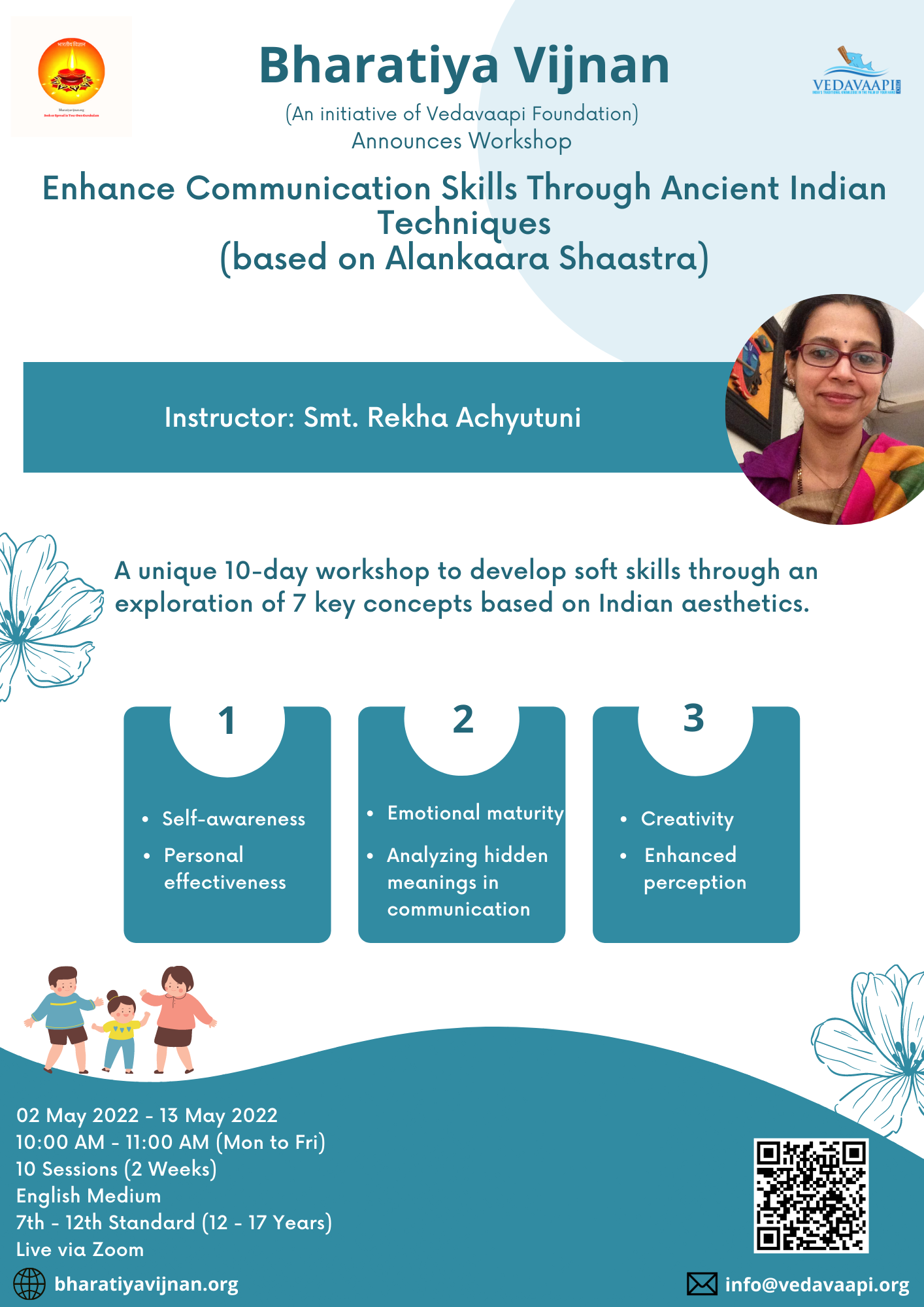
- Teacher: Rekha Achyutuni
Integral Yoga Psychology based on the works of Sri Aurobindo has established itself as a legitimate academic entity. Integral Yoga Psychology provides a meta-theory and comprises an extensive body of related theories and practices, that has something distinct to contribute to global civilization. We believe that the introduction of Integral Yoga Psychology as a course of study and as a basis for research could awaken psychology in India into an active pursuit of understanding human nature and also greatly promotes wellness.
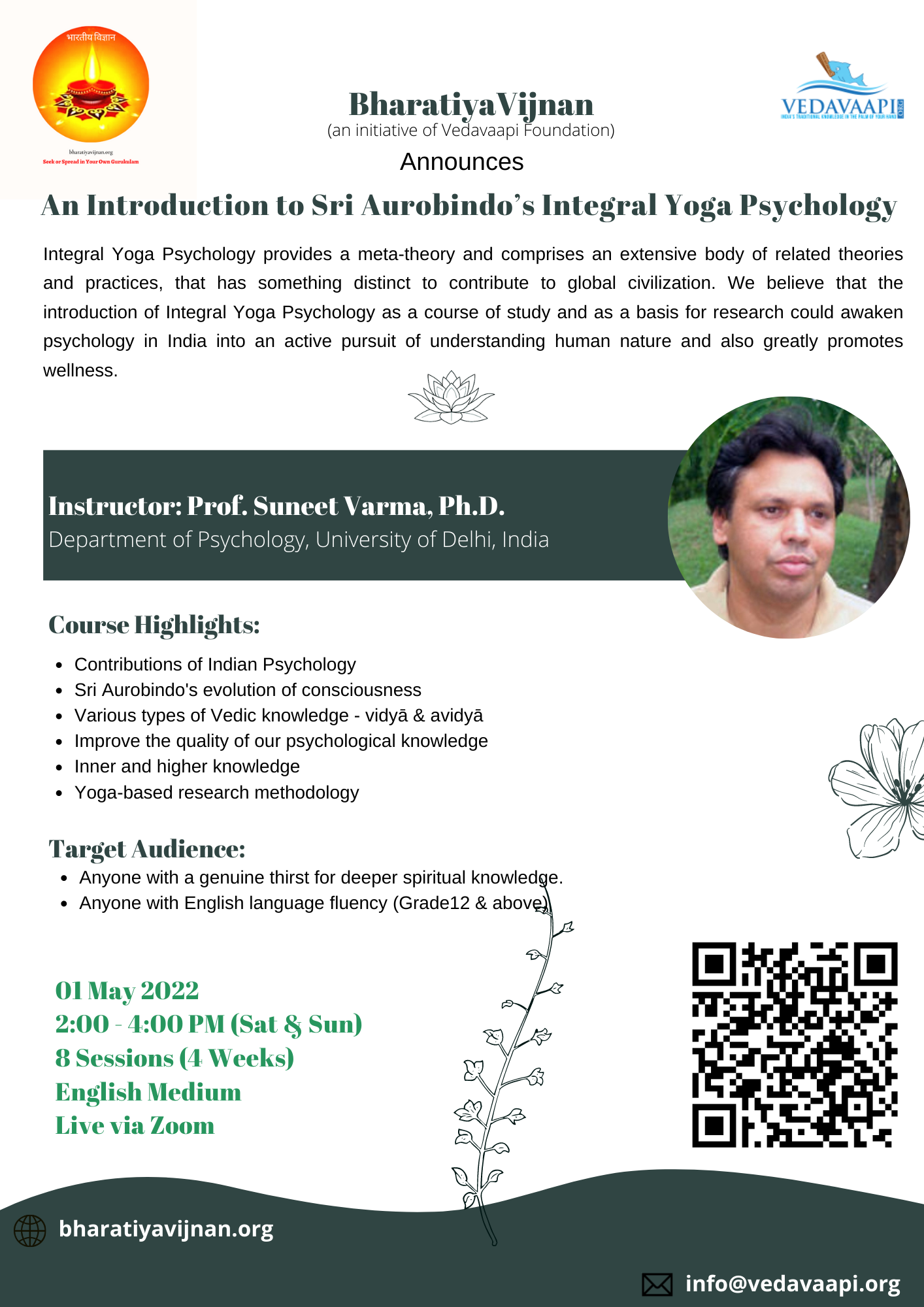
- Teacher: Kuppa Seetha Kalyani
- Teacher: Kuppa Seetha Kalyani
- Teacher: Kuppa Seetha Kalyani
- Teacher: Vaishnavi Nishankar
- Teacher: Yatova Pratishthana
- Teacher: Sarada Susarla
- Teacher: Dr. Dayananda A R
- Teacher: Sushama Chintalapati
- Teacher: Vaishnavi Nishankar
- Teacher: Dayananda Sharma
This is a preview of the question types to expect in a full Samskrit Proficiency Test at different levels of complexity.
Please access the preview test immediately by logging into this site with the
Username: vvsampler
Password: atithiH
After logging in, click on the course named “Sanskrit Proficiency Test – Preview” and launch the quiz. This quiz offers a few samples of all the question types to expect in the real test.
This course constitutes 2 tests on Samskrit language proficiency at Basic and Intermediate levels. Passing both of them is mandatory for entrance into Masters' programs in Sanskrit by MIT School of Vedic Sciences, Pune INDIA. The Intermediate level is accessible only when candidate scores at least 60% marks in the Basic level.
- Teacher: Sushama Chintalapati
Modern-day parents want their children to imbibe scientific thinking and be innovators in whatever area they choose to pursue. However, today’s school education system focuses on informing the findings of science but not the method of scientific thinking and model-based reasoning in a formal way. India’s traditional education system used to have formal training in thorough mastery over language, vocabulary, and poetic stories followed by the study of Nyaaya (logic) and Saankhya shastras (cosmology).
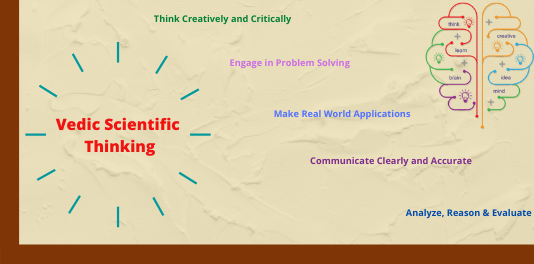
- Teacher: Suryanarayana Jammalamadaka
Aparṇājatilam (अपर्णाजटिलम्) is from the fifth canto of Kālidāsa’s Kumarasambhavam. Aparṇā, daughter of Himavan and Mena, follows rigid austerities while performing penance in the scorching sun-heat, calm winter waters, and heavy downpours. Lord Śiva, pleased with her penance, enters her hermitage in the guise of a young celibate. His criticism of Śiva, Aparṇā’s reply to that and Lord Śiva’s revelation of himself are the contents of Aparṇājatilam.
Kālidāsa’s description and style undoubtedly add beauty to the discourse.
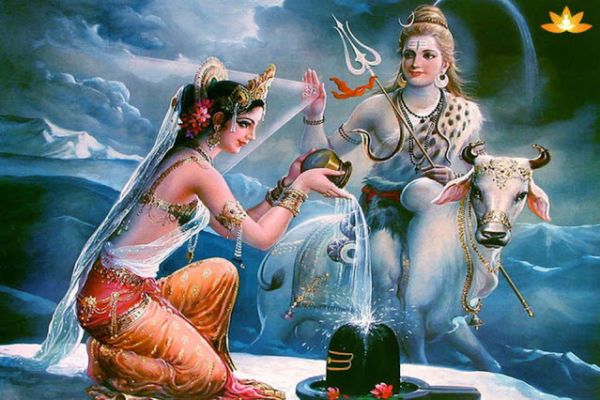
- Teacher: Dr. Anupama Ryali
Vedavaapi Foundation and MITSVS proudly announce this 10 session Talk series by Prof K E Devanathan, Vice Chancellor, Karnataka Sanskrit University, Bengaluru. This series aims at introducing the technical terminology used in Shaastras by the Nyaya and the Purva-mimaamsaa Schools. Prof K E Devanathan, a traditionally trained stalwart, shares his deeply digested insights into these terse subject matters. He enables their contextual and intuitive comprehension and application.
While this is a free talk series, we urge you to please fill the below registration form.This enables us to provide the access to the online interactive sessions to you.
This curriculum offers the Indic approach to the critical study of the Pratyabhijna philosophy, which is the most fully developed body of teachings in non-dual Śaiva Tantra-Agama. The rich corpus of Agama and Tantra literature and Practices has impacted more directly on the spiritual outlook and religious adherences, rather silently than other influences. The course would walk the learner through the gamut of this rich literary treasure and use the primer text ‘Pratyabhijnahrdaya’ of Rājānaka Kṣemarāja for structuring the learning material. While the attempt is to stay as true to the original author’s vision, this course attempts to make a meaningful contribution to the spiritual dimension of human life. It does not merely report what was taught by scholar-philosophers in the Valley of Kashmir 1,000 years ago; it also attempts to show how, what Kṣemarāja wrote, constitutes a cutting-edge contribution to spiritual discourse in the current age by unpacking his meaning in terms of concepts, metaphors, and analogies that are current in our present culture.
Thorough research has gone into the design of the curriculum.
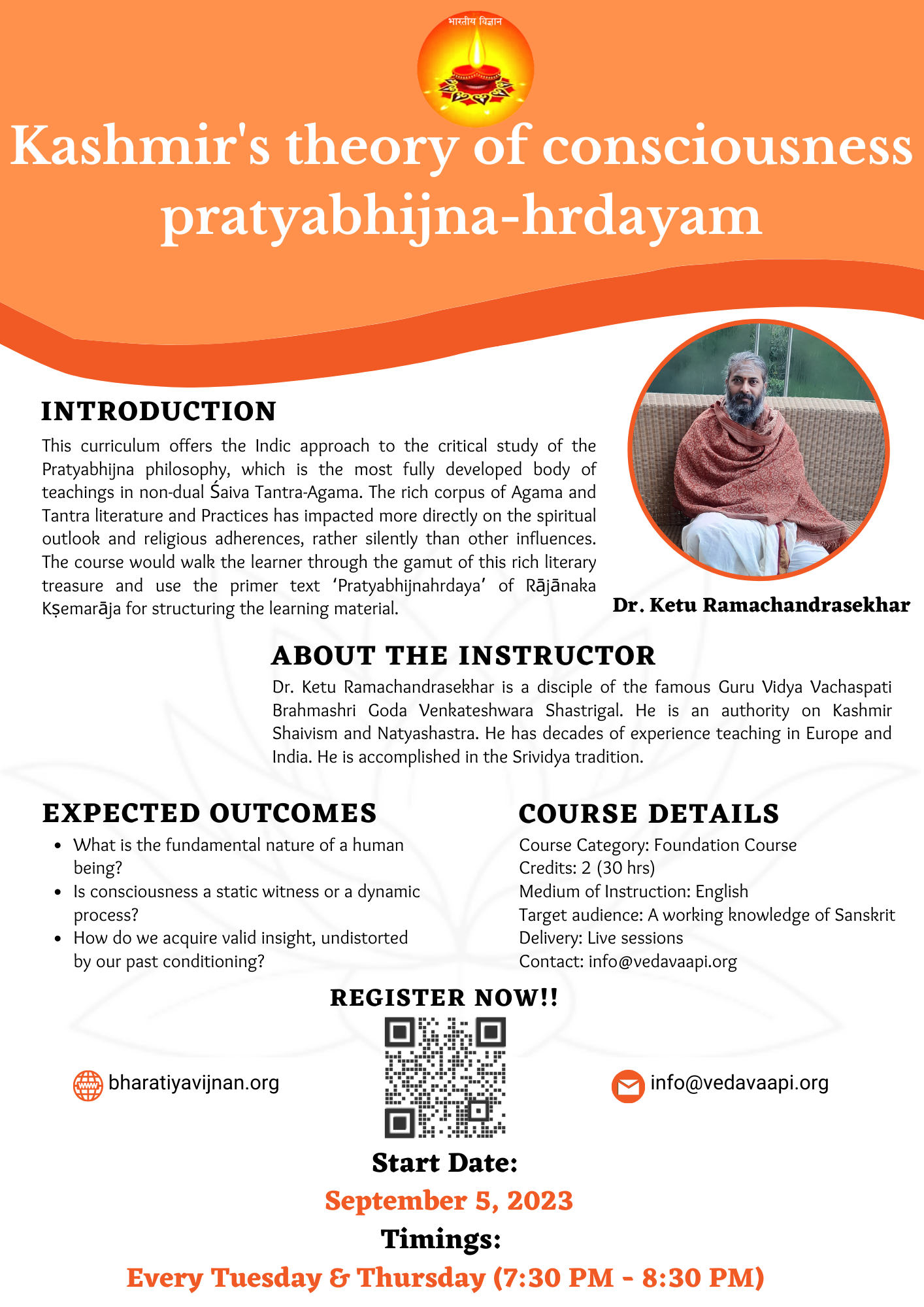
- Teacher: Ramachandrasekhar Padmanabhan
A 30 Hrs course on the concepts of reasoning and debating
